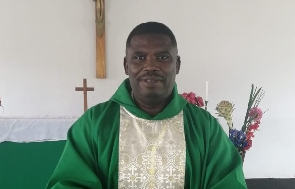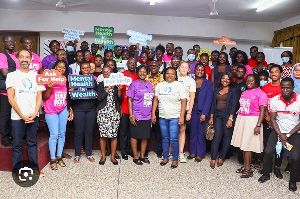First and foremost, let me please remind you about what Holy Scripture boldly proclaims: “See what love the Father has bestowed on us that we may be called the children of God. Yet so we are” (1 Jn 3:1). This love comes from God and unites us to God. And through this unifying process, it makes us a ‘we’, which transcends our divisions and makes us one, until, in the end, God is ‘all in all’ (1 Cor 15:28).
Brothers and sisters, through the work of the Holy Spirit, we are called to share with everyone the gift of love. And as the Gospels declare: "For God did not send his Son into the world to condemn the world, but to save the world through him. And so, the good news of salvation that Jesus cheerfully proclaims is for us all.
As Christians, should we forget that God has reconciled himself with us all indiscriminately through the Cross and the Resurrection of Jesus, and that we are called into this ministry of love and reconciliation with one another, including our brothers and sisters who are gay?
They are our friends and family, and they are part of us. And God is calling us to accept and welcome them into our fellowships and offer them love, hope, and pastoral care so that they too can flourish in their spiritual lives and live meaningfully to the glory of God and the edification of humanity.
I know that it is genuinely about your love and zeal for the Lord that you are pursuing this, and as Honourable Sam George said, “we are doing it for God and the people of Ghana”.
But Jesus admonishes us not to judge so that we won't be judged too. In Matthew chapter 7, Jesus says, "Do not judge, or you too will be judged. For in the same way you judge others, you will be judged, and with the measure you use, it will be measured to you." Why do you look at the speck of sawdust in your brother's eye and pay no attention to the plank in your own eye? How can you say to your brother, ‘Let me take the speck out of your eye,’ when all the time there is a plank in your own eye? You hypocrite, first take the plank out of your own eye, and then you will see clearly to remove the speck from your brother’s eye.
Beloved in Christ, my question is: who is in the position to judge or condemn? Only Christ, who died for our sins on the cross and bought us salvation, is the right judge who will come to judge the living and the dead, as the Apostles' Creed declares.
He compares the Kingdom of God to a person who sows good seed in a field. While he sleeps, an enemy comes and sows weeds among the wheat. This would have meant that the two grew up together, and their roots would have intertwined. The servants went to their master and inquired from him as to whether or not they should go and pull the weeds up from the wheat.
But their master refused their request for fear that they might damage the wheat while uprooting the weeds. He thus advised them to let both grow together until the harvest, when he will instruct the harvesters to first collect the weeds and tie them in bundles to be burned, and then gather the wheat and bring it into his barn (Matthew 13:24-30). The moral lesson in this parable is that we need to learn not to be judgemental of people because, at the end of time, God will pronounce his own judgement on each and every one of us. Another moral lesson from this parable is that we must be patient with one another in all things, as demonstrated by Jesus.
In the story of a woman caught in adultery, Jesus commanded that the one who had never sinned throw the first stone, and none was able to do so (John 8:1–11).
My dear friends in the Lord, what we need to know as disciples of Christ Jesus is that he is, and in all things must remain, our perfect example of morality. And we need to follow his path to show love that embraces, not the kind that discriminates or condemns.
Hence, in this season of advent, I pray that the love of Christ overwhelms you in your endeavours, especially as you discuss and deliberate on this bill in reverence to God. And may the Prince of Peace grant you grace to always show love, compassion, mercy, reconciliation, forgiveness, and, in all things, patience.
I end here, brothers and sisters, by using the sweet words of the Apostle Paul, "Be on your guard, stand firm in the faith, be courageous, and be strong. Your every act should be done with love” (1 Cor 16:13–14).
I wish you a blessed Merry Christmas and a prosperous and fulfilling New Year.
Opinions of Saturday, 9 December 2023
Columnist: Rev. Canon Dr. Confidence Worlanyo Bansah



















